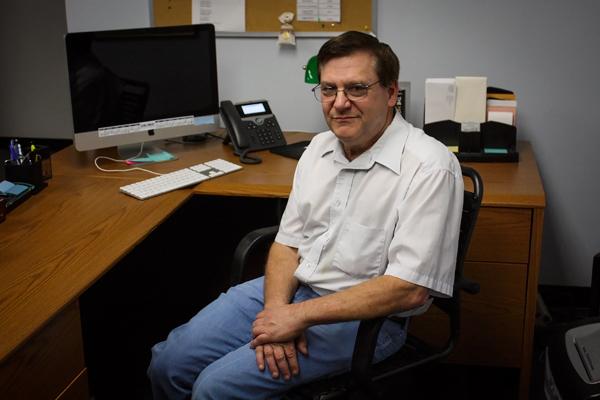Students taking language courses will not have to pay as much in fees next semester.
Officials in the Columbian College of Arts and Sciences lowered foreign language course fees from $60 to $15 for the next semester. They said that as more tools become available for free online, they were able to cut back on charges for resources that students no longer use.
The fees, which go directly go to CCAS and not to individual language departments, fund the Language Center, a group of classrooms and labs that supports language teaching and learning for students and faculty through resources like tutoring or testing.
Paul Wahlbeck, the vice dean for programs and research, said in an email that the fees were lowered because students no longer need to go to language labs when they can access materials online. He added that individual language departments and officials also wanted to reduce the course fees because students were no longer using some services in the Language Center.
“After consulting with departments and the Provost’s office, we decided to reduce the fees to $15,” he said. “The remaining fees support the tutoring services that are provided to students in the language courses.”
María José De la Fuente, the director of the Spanish language program, said in an email that her department had been considering lowering the fees for a few years after they realized students were not using the Language Center as often as they used to.
“The language course fees, or ‘language lab’ fees, were lowered because language learning at GW no longer requires the use of a ‘lab,’” she said. “As language instruction has evolved, students no longer need to visit the Language Center for language practice.”
She added that the amount students pay now is enough to cover services they do use in language classes, like tutoring and movie screenings.
Richard Robin, the chair of the department of Romance, German and Slavic languages and literatures, said in an email that up until recently, the Language Center was used to provide backup for technology required for foreign language teaching and for access to expensive equipment that anyone can now access from a laptop.
“The first media server ever installed in the Language Center cost $35,000. But today, nearly everyone has access to this technology at home,” Robin said. “The Language Center no longer needs to have massive amounts of equipment on hand to borrow.”
Robin said the Language Center has other non-technological functions, like tutoring, and its staff coordinate the work of student peer tutors.
He added he does not believe the fee change will lead to increased enrollment. While enrollment in language classes in the department of Romance, German and Slavic languages and literatures has generally been high, with Spanish enrollment often almost exceeding the number of classes available, faculty have said they hope more students would take languages as a part of a well-rounded education.
“Unfortunately, the CCAS G-PAC does not allow students to count basic foreign language learning towards graduation – something in my view that takes away from the notion of GW as a place of international learning,” he said. “Our enrollments will rise when the College recognizes that learning a foreign language widens the window onto new information and experiences.”
Pardis Minuchehr, the director of the Persian program and an assistant professor of Persian, said she would like to see students use the language labs again for extra experience to help learn the languages.
“In the past, language classes had a lot of audio material that was used in language labs, but now everyone has internet access and a computer, so the need for it has been lessened,” she said. “But to tell you the truth, I would have like to see more language labs, and more students coming and participating in them.”
These cuts in the fees also fit into a larger push from officials and student leaders to help make classes more affordable.
Student Association President Erika Feinman and Executive Vice President Thomas Falcigno both included affordability as a major part of their platforms during their campaigns last spring. And the SA passed a resolution at the beginning of this academic year requiring each of the senate’s committees to create a report on affordability to present at the end of the academic year.
Officials have also advocated for smaller changes that could help reduce costs for students. At this month’s Faculty Senate meeting, Provost Forrest Maltzman encouraged faculty to think about the cost of materials for their courses when developing their syllabi for the spring semester.
“We have open access materials and the utilization of journal articles in the library,” Maltzman said at the meeting. “Small reductions in each of our courses have significant impacts for students. Just be mindful of that.”
Johnny Morreale contributed reporting.







